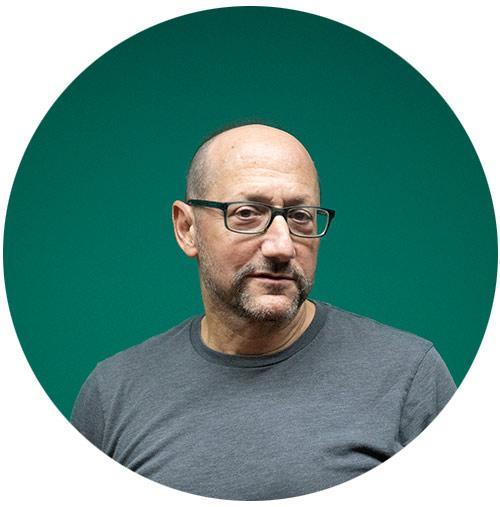
Professor Keith Gandal and his brother Neil discovered a psychosocial component to pandemic deaths.
Keith Gandal, professor of English in the Division of Humanities and the Arts at The City College of New York, and his brother Neil Gandal, professor of economics at Tel Aviv University, examined U.S. COVID-19 deaths by day of the week during the first several months of the pandemic, from March to August 2020.
Using data from the two largest U.S. states that reported fatalities by day of actual death from the beginning of the pandemic, they show that daily deaths in Florida and Texas during the week were seven to eight percent higher than daily deaths on the weekend in those states. Even in hospitals, the weekend is a more relaxed time.
A weekend decrease in daily COVID fatalities did not meanwhile occur in New York City (which also reported fatalities by day of actual death), where during this period the pandemic was each and every day treated as an emergency and hospitals did not have lighter, “weekend” staffing on Saturdays and Sundays.
In essence, the Gandal brothers show that pandemic COVID deaths, like heart attacks and heart-attack fatalities, have a psychosocial component.
“While doctors are familiar with the fact that heart attacks and coronary deaths occur less during the weekend, they are not familiar with our new and similar findings about pandemic COVID deaths,” said Keith Gandal.
Doctors have given the name “broken-heart syndrome” or stress cardiomyopathy to heart attacks that occur in response to a sudden acute stress, such as the death of a loved one. And the Gandal brothers would suggest that something analogous was going on during the pandemic with what might be called “stress COVID fatalities.” For example, if COVID patients during the pandemic became suddenly stressed about their illness because of a new lockdown policy or a report on rising fatalities, they might end up experiencing more severe symptoms or even dying.
“I hope this will give our health officials pause,” said Keith Gandal. “Our findings imply that managing a pandemic through the promotion of fear is dangerous.”
The Gandal brothers’ article “What Do Suicides, Heart Attacks and COVID-19 Deaths Have in Common?” appears in The European Society of Medicine.
Keith Gandal is the author of six books, including studies of American urban poverty and the American mobilization during World War I. His latest book, “Firsthand,” is a memoir that touches on his hospitalization as a child during the 1968 H3N2 pandemic. Neil Gandal has published numerous papers about industrial organization and the economics of information technology, the software and internet industries, and cybersecurity and cryptocurrencies.
About The City College of New York
Since 1847, The City College of New York has provided a high-quality and affordable education to generations of New Yorkers in a wide variety of disciplines. CCNY embraces its position at the forefront of social change. It is ranked #1 by the Harvard-based Opportunity Insights out of 369 selective public colleges in the United States on the overall mobility index. This measure reflects both access and outcomes, representing the likelihood that a student at CCNY can move up two or more income quintiles. Education research organization Degree Choices ranks CCNY #1 nationally among universities for economic return on investment. In addition, the Center for World University Rankings places CCNY in the top 1.8% of universities worldwide in terms of academic excellence. Labor analytics firm Lightcast puts at $3.2 billion CCNY’s annual economic impact on the regional economy (5 boroughs and 5 adjacent counties) and quantifies the “for dollar” return on investment to students, taxpayers and society. At City College, more than 15,000 students pursue undergraduate and graduate degrees in eight schools and divisions, driven by significant funded research, creativity and scholarship. In 2023, CCNY launched its most expansive fundraising campaign, ever. The campaign, titled “Doing Remarkable Things Together” seeks to bring the College’s Foundation to more than $1 billion in total assets in support of the College mission. CCNY is as diverse, dynamic and visionary as New York City itself. View CCNY Media Kit.
Thea Klapwald
e:
tklapwald@ccny.cuny.edu